Earth
Sign up for our newsletter
We summarize the week's scientific breakthroughs every Thursday.
-
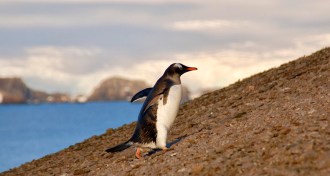 Ecosystems
EcosystemsVolcanic eruptions nearly snuffed out Gentoo penguin colony
Penguin poop dumps data on how a Gentoo colony responded to ancient volcanic eruptions.
-
 Ecosystems
EcosystemsVolcanic eruptions nearly snuffed out Gentoo penguin colony
Penguin poop dumps data on how a Gentoo colony responded to ancient volcanic eruptions.
-
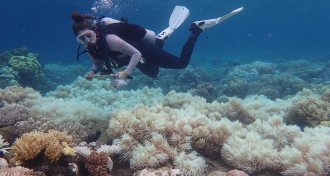 Climate
ClimateThe Great Barrier Reef is experiencing a major coral bleaching event right now
A second coral bleaching event has struck the Great Barrier Reef in 12 months, new observations reveal, raising concerns about the natural wonder’s future.
-
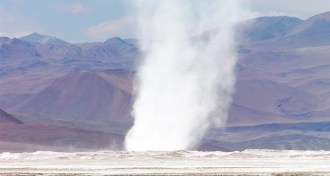 Earth
EarthWhirlwinds of crystals called gravel devils spotted in Andes Mountains
Large whirlwinds in northern Chile can carry gravel-sized gypsum crystals several kilometers before dumping them in mounds.
-
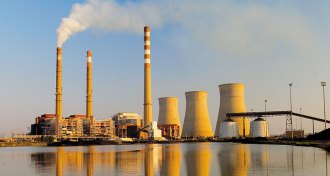 Environment
EnvironmentWhen coal replaces a cleaner energy source, health is on the line
Health concerns prompted a shift from nuclear power to coal. But that shift came with its own health troubles, a new study suggests.
-
 Oceans
OceansThinning ice creates undersea Arctic greenhouses
Arctic sea ice thinned by climate change increasingly produces conditions favorable for phytoplankton blooms in the waters below, new research suggests.
-
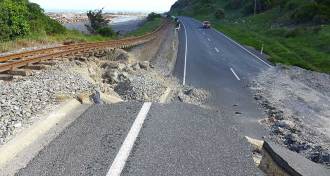 Earth
EarthDeadly New Zealand quake hopscotched across faults
The Nov. 14, 2016, earthquake in New Zealand was much larger than thought possible at the time, prompting a rethink of hazard assessments.
-
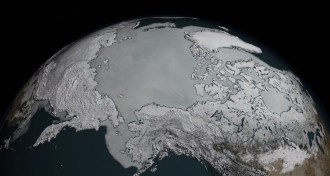 Climate
ClimateArctic sea ice hits record wintertime low
Warm temperatures and heat waves reduced sea ice extent in the Arctic to its smallest maximum extent ever seen.
-
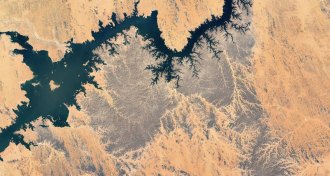 Physics
PhysicsTo understand rivers, let physics be your guide
Where the River Flows unites physics and environmental science to explain Earth’s waterways.
-
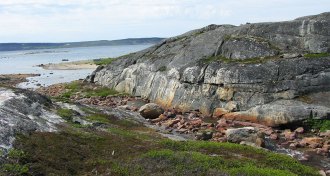 Earth
EarthRemnants of Earth’s original crust preserve time before plate tectonics
Canadian rocks containing bits from 4.2 billion years ago suggest that full-fledged plate tectonics had a late start.
-
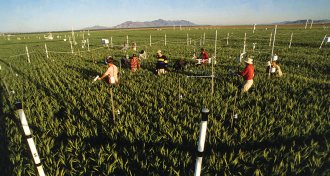 Climate
ClimateChanging climate could worsen foods’ nutrition
Climate change could aggravate hidden hunger by sapping micronutrients from soils and plants, reducing nutrition in wheat, rice and other crops.
By Susan Milius -
 Genetics
GeneticsHow to grow toxin-free corn
Corn genetically altered to produce specialized molecules may prevent a fungus from tainting it with carcinogenic toxins.